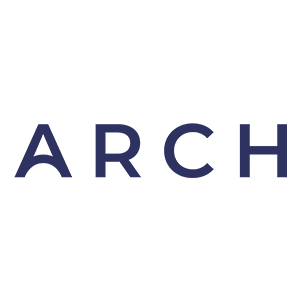The New Frontier of Wealth: How Alternative Investments are Shaping Family Offices

Family offices have traditionally been a mysterious entity in the wealth management space. Designed to preserve privacy, exclusivity, and prestige, family offices seemed destined to remain under the radar, each operating to its own unique beat. However, as wealth continues to grow across a broader spectrum, the establishment of family offices is beginning to follow a more familiar tune.
According to Deloitte’s Family Office Insights Series report, the number of Americans with a net worth exceeding $30 million grew nearly 10% in 2023, and the number of individuals worth more than $100 million and $1 billion has doubled over the past 20 years. With the minimum net worth of families establishing private offices around $50 million, it’s clear that family offices are not only a wise decision, but perhaps essential.
The new generation of high-net-worth individuals are increasingly opting for the bespoke nature of family offices rather than the convenience offered by institutional players such as banks or wealth management firms. By eliminating these intermediaries from their investment decisions, these sophisticated investors feel empowered to concentrate their portfolios in areas where they have either a competitive edge or an ability to invest in assets that are aligned with their particular social, political, or economic interests.
Nearly a quarter of family offices anticipate the influence of younger generations to impact family focus toward sustainable, mission-driven, and technology-forward investments. While family offices have long relied on short-term fixes to the countless headaches that arise in their day-to-day operations, these emerging trends illustrate a fundamental shift in how family offices will function for years to come. To ensure family offices continue as the hub for services, expertise, and assets in these lucrative fields, it’s crucial for in-house teams to invest in the elimination of administrative burdens preventing full potential.
While there is no single strategy for how family offices invest, there has been a noticeable shift toward private markets. Currently, 46% of family office assets are allocated to alternative assets such as private equity, venture capital, hedge funds, and direct investments - amounting to a projected $2.48 trillion market by 2030. More than 70% of family offices believe that investing in private markets will yield better long-term returns than public equities. This trend is welcomed by general partners, as family offices are viewed as patient and lucrative investors.
The rise in demand for family office capital is significant, but ensuring long-term wealth preservation for future generations is the true testament of success. As family offices strive to streamline and institutionalize their operations, several key trends are emerging:
- Hiring: Family offices have traditionally operated with lean teams, averaging a 15 person staff overseeing $2 billion in assets. But 40% of family offices are presently focused on hiring talent to expand and professionalize their internal investment operations. For most families with the wealth and resources to launch a family office, the original operating business that generated their wealth accounts for a large part of the operational day-to-day. As such, there is a great need for competent talent that not only has experience, but also understands unique family dynamics and investment capabilities.
- Service Expansion: The longer that family offices operate, the more their core priorities evolve. As of September 2024, 52% of family offices anticipate growing their functionality to include additional services such as performance reporting, tax planning, and general accounting.
- Increasing Technology: Family offices are not only prioritizing technology investments for their portfolio, but also exploring technology vendors to optimize their in-house operations. 41% of family offices anticipate a widespread embrace of technology to reduce manual and repetitive tasks, improve transparency, and enable better decision-making.
As the global family office industry is anticipated to grow 11% year over year, Arch is uniquely positioned to meet the growing demands of this customer segment. Arch’s single family office business has seen 86% growth, currently serving 110 single family offices as of September 2024. This success reflects Arch’s deep understanding of family office pain points and its ability to address them through technology, customer service, and product development. As assets managed by family offices continue to rise – projected to reach $5.4 trillion by 2030 – Arch is eager to continue contributing to the transformation of the alternative investment space.
|
|
Arch is the digital admin for private investments, delivering the missing infrastructure for managing and understanding private market investments. ARCH consolidates data from the various web portals, collects K-1s, and tracks performance, cash flows, and metrics across investments, while digitally updating existing reporting and accounting systems. We're a New York in-person team supporting $125B in assets across 275 investment advisors, families, and institutions, including a top-5 US bank. |
